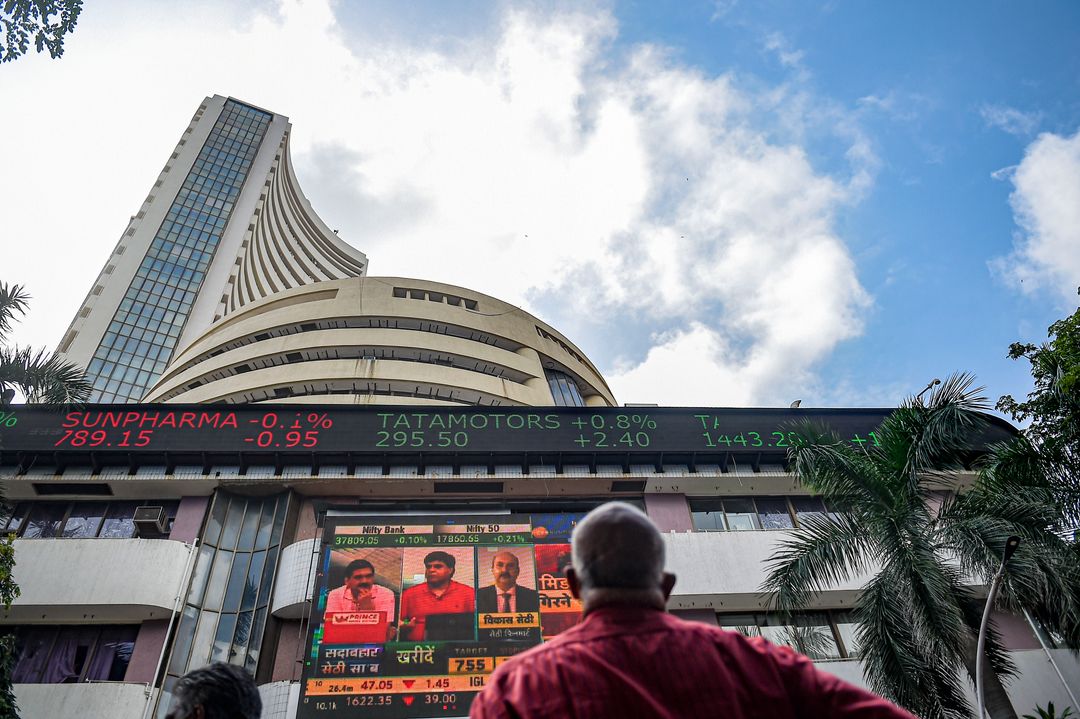
Equity markets are poised for increased volatility in the upcoming week, heavily influenced by developments related to US tariffs, global market trends, and foreign investment activities, according to market analysts.
Investor sentiment remains subdued due to intensifying concerns over trade tariff escalations and continuous foreign fund withdrawals. Highlighting the severity of the situation, in February alone, the NSE Nifty witnessed a sharp decline of 1,383.7 points, or 5.88%, while the BSE Sensex shed 4,302.47 points, equivalent to a 5.55% drop.
Markets Plunge Sharply from Record Highs
From the record peak reached on September 27, 2024, the BSE Sensex has plunged 12,780.15 points, a staggering decline of 14.86%, from its historic high of 85,978.25. Similarly, the NSE Nifty has lost 4,152.65 points or 15.80%, retreating significantly from its lifetime high of 26,277.35 recorded the same day.Vinod Nair, Head of Research at Geojit Financial Services, said, "Investors will be closely watching key events, including tariff policy developments and US jobless claims data. Market conditions are expected to remain weak in the short term, with a gradual recovery anticipated from Q1 FY26 onwards as earnings improve and global trade uncertainties subside."
Macroeconomic Data Crucial This Week
Market participants are also expected to closely monitor macroeconomic indicators, including the release of HSBC manufacturing and services PMI data scheduled this week. These metrics could offer insights into the health of India's economic activities and influence investor sentiment.According to Siddhartha Khemka, Head of Research at Motilal Oswal Financial Services Ltd, "Markets will likely remain under pressure due to weak global sentiment and a notable absence of domestic growth triggers."
Indian Economy Records Modest Recovery
Recently released data from the Statistics Ministry revealed the Indian economy expanded by 6.2% during the December quarter, reflecting sequential improvement from a seven-quarter low of 5.6% recorded in the July-September period. Nevertheless, the GDP growth figure fell short of the Reserve Bank of India's (RBI) expectation of 6.8%, as economic pressures from potential US tariff wars linger.Persistent Selling by Foreign Investors
Last week, market indices continued their downward trajectory, with the Sensex plunging 2,112.96 points (2.80%), and the Nifty falling 671.2 points (2.94%). Ajit Mishra, Senior Vice President (Research), Religare Broking Ltd, noted, "Market uncertainty often weighs heavier than actual events. Currently, the markets are wrestling with fears of potential trade wars and persistent selling by Foreign Institutional Investors (FIIs)."GST Collection Indicates Potential Economic Revival
Amid these challenges, a bright spot emerged with GST collections rising by 9.1% year-on-year to approximately Rs 1.84 lakh crore in February. This increase, primarily driven by strong domestic consumption, signals potential for economic revival. Official data showed Central GST collections stood at Rs 35,204 crore, State GST at Rs 43,704 crore, Integrated GST at Rs 90,870 crore, and Compensation Cess at Rs 13,868 crore.Near-term Market Outlook
Providing insight into the immediate future, Satish Chandra Aluri, Analyst at Lemonn Markets Desk, remarked, "Friday’s steep market losses hint at signs of market capitulation. While we might witness a short-lived relief rally due to oversold conditions, the overall market trajectory remains volatile, with a bias tilted towards the downside."Investors and market participants should brace themselves for potential fluctuations ahead, carefully tracking global cues, macroeconomic data, and policy decisions in the United States.
Last updated by a enewsx:
